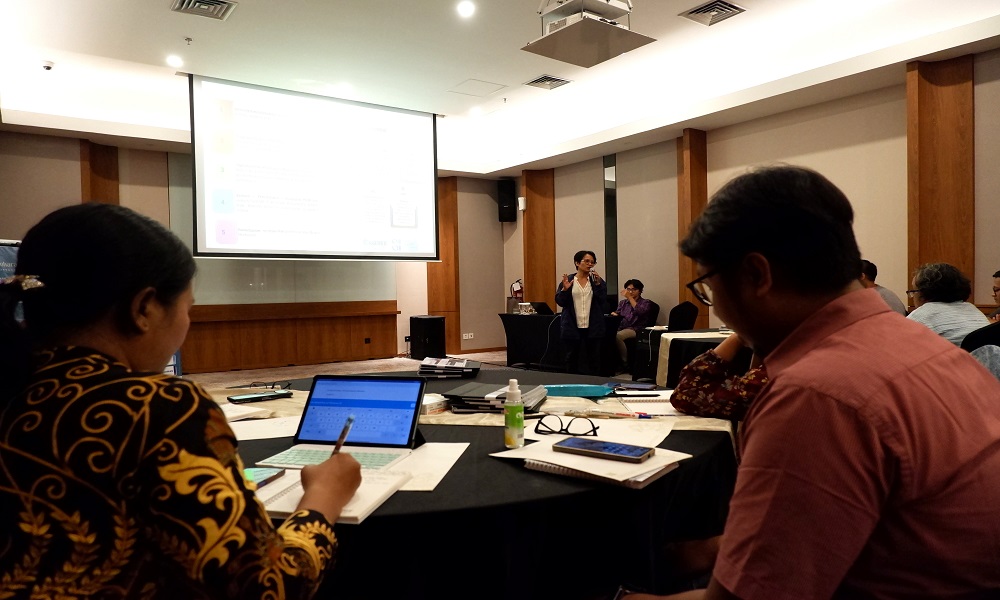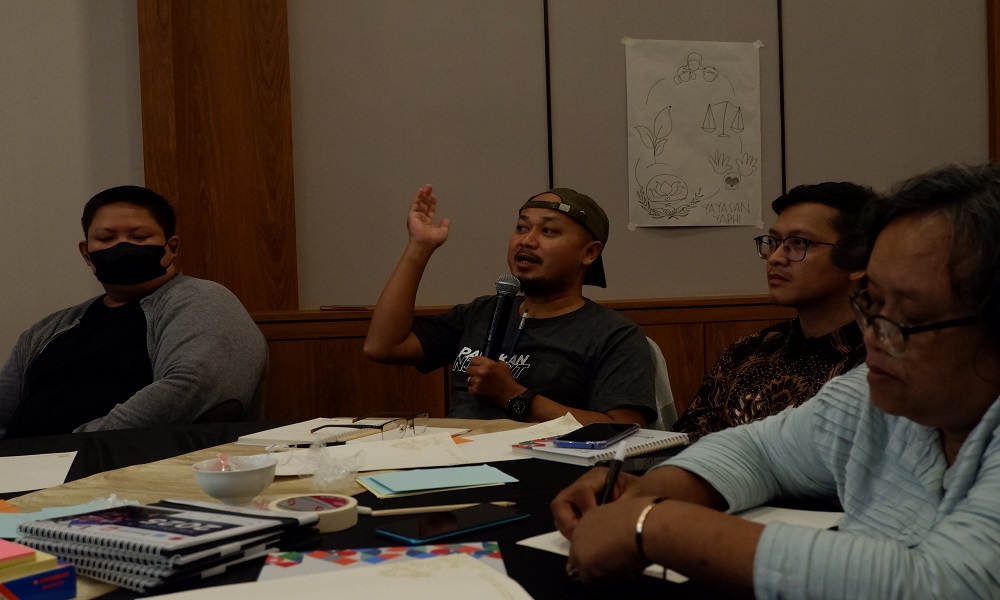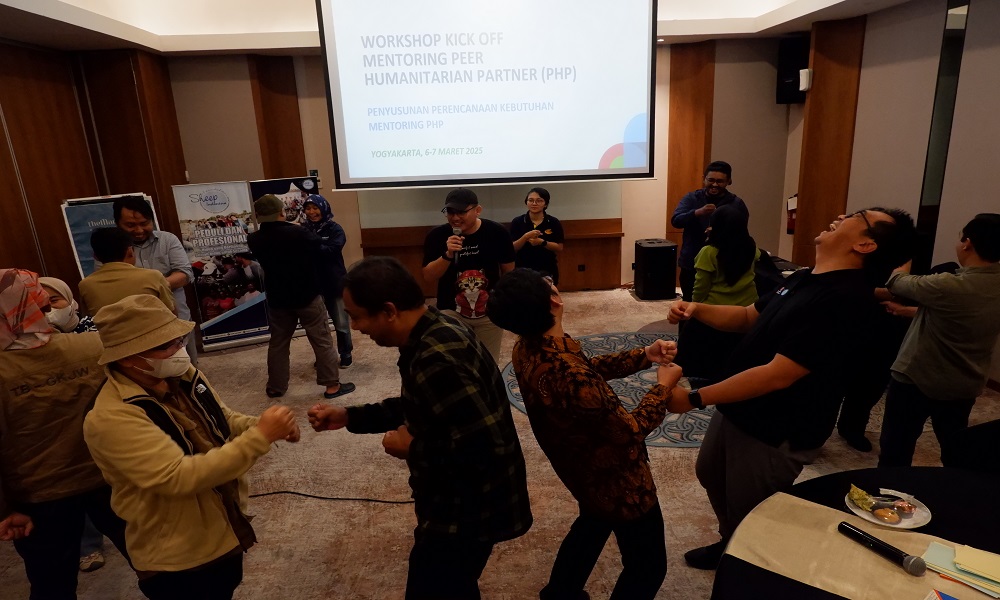SHEEP Indonesia Foundation (YSI) held a workshop on mentoring needs planning for local partners/Peer Humanitarian Partners (PHP) on March 6-7, 2025, in Yogyakarta. This activity is part of the ToGETHER Program, which aims to enhance the capacity and participation of local partners in humanitarian action to make it more responsive, effective, and accountable. The workshop was attended by 20 participants representing five civil society organizations selected as PHPs, along with representatives from YSI.

The workshop began with an overview of the mentoring scope and syllabus, followed by a discussion on the Appreciative Inquiry method—an approach that focuses on strengths, potential, and successful practices of individuals or organizations. Many participants showed great enthusiasm in discussions about this method, recognizing its potential to create positive change within their organizations by leveraging existing strengths and capacities.
Additionally, the workshop served as a platform for discussions on new humanitarian response terminologies, including the eco-humanitarian concept. This concept was a particularly intriguing topic as it holds significant potential for application in humanitarian responses, especially for PHPs that are still in the early stages of developing experience in disaster and humanitarian response. A deeper understanding of this concept is expected to help organizations adopt more sustainable and ecology-based approaches in their humanitarian efforts. On the second day, each PHP engaged in discussions and presentations about their capacity-building needs to better understand the challenges and opportunities they face in humanitarian action. YSI emphasized the importance of agreeing on a realistic and sustainable work plan, as mentoring is not just about sharing experiences but also about collaboratively building strategies to strengthen each organization’s capacity for humanitarian response.

In closing, Andreas Subiyono, the workshop facilitator and YSI Director, highlighted that localization presents a significant opportunity in humanitarian action. While materials and standards come from a global level, localization offers a chance to build stronger capacities at national and local levels. “Localization provides space to shape a more effective and accountable humanitarian aid culture in Indonesia. Therefore, the demand for accountability is becoming increasingly important so that each organization can establish a clear vision in humanitarian response,” he stated.

The workshop resulted in a work plan that will serve as a guideline for the implementation of the mentoring program. This mentoring initiative will run for approximately thirty months and will be regularly monitored. PHPs will continue to receive support from YSI to ensure that the implementation of the work plan aligns with expectations.

